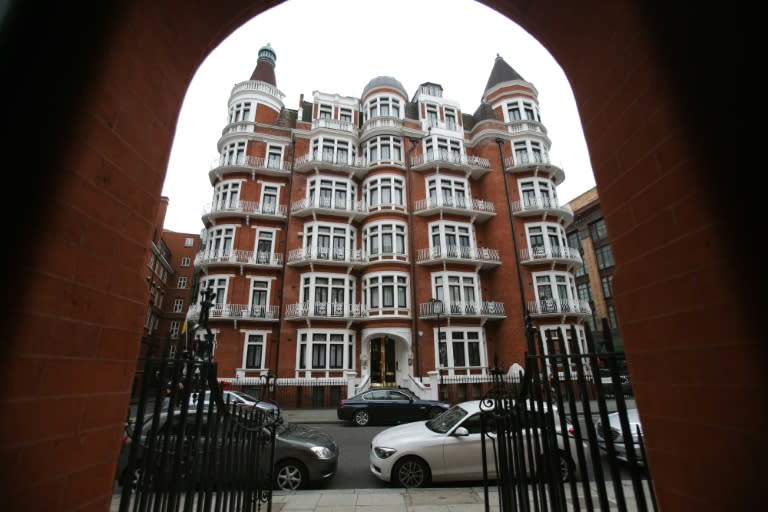Ecuador denounces spying on Assange at London embassy
Ecuador's foreign minister voiced suspicion on Wednesday that British intelligence was perpetually spying on his country's embassy in London, where Wikileaks founder Julian Assange is camped out. "There are cameras everywhere. It is one of the most spied on embassies in the world," Ecuador's top diplomat Guillaume Long told reporters in Geneva, on the sidelines of a Human Rights Council session. "You are very fortunate if you can even make a phone call from inside the embassy. Internet collapses all the time. Everything is hacked. It is a pretty hostile context for Mr. Assange, every day," Long said. Asked if he believed British intelligence was responsible for the espionage, Long said: "I have my suspicions." Assange, 44, is wanted for questioning over a 2010 rape allegation in Sweden but has been inside Ecuador's UK mission for more than four years in a bid to avoid extradition. The anti-secrecy campaigner, who denies the allegation, walked into the embassy of his own free will on June 18, 2012, with Britain on the brink of sending him to Stockholm, and has not left since. Long said Assange's health was deteriorating, mentioning a serious arm problem without providing details. The minister said he came to the rights council during a European diplomatic tour partly aimed at resolving the Assange saga. A UN panel in February issued a non-binding legal opinion that Assange had been subjected to arbitrary detention by the Swedish and British governments. Stockholm and London have both rejected that ruling, with Britain calling for an official review. Long accused Britain of demanding compliance with UN human rights rulings in various contexts around the world, while dismissing such opinion when they hit close to home. "This is a clear case of double standards which Ecuador denounces." Long restated Ecuador's position that it did not want to interfere with Sweden's rape investigation. Quito would support Assange's transfer if Stockholm could provide guarantees that he would not be sent to the United States for prosecution over WikiLeaks' release of 500,000 secret military files.



